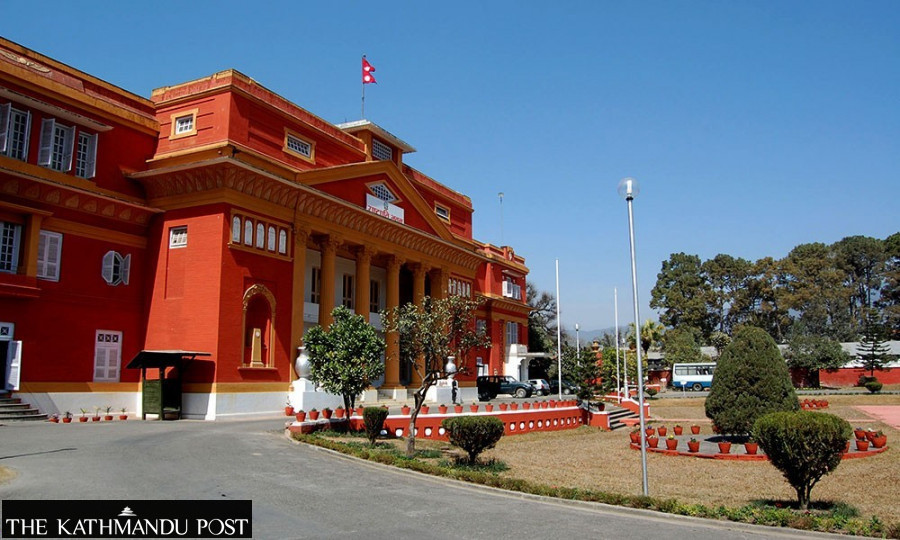Politics
Which first: PM appointment or House session?
President’s Office says there has been no consultations about which of the two routes to take.
Post Report
As the Election Commission is all set to submit the final results of the federal and provincial elections to President Bidya Devi Bhandari on Thursday, a new curiosity is taking hold.
Will the President call for government formation first as she did in the case of KP Oli, the chairman of the CPN-UML, in February 2018, or will she summon the Parliament session to swear in the new lawmakers?
In 2018, then Prime Minister Oli, without taking the oath as a member of Parliament, staked claim over new government after the CPN (Maoist Centre) decided to support Oli. With the support of the Maoist Centre, Oli was appointed prime minister as per Article 76 (2) of the constitution.
The current ruling coalition wants to undo the precedent, while the UML is sticking to it.
“We are in favour of correcting the previous mistake this time and want to call the House session first,” said Bishwa Prakash Sharma, general secretary of the Nepali Congress. “As soon as that happens, the oath-taking ceremony of the newly elected members of the parliament will start.”
“After completing oath-taking, then we will jump to electing the party parliamentary leader within four days as per our party charter,” said Sharma. After that, the process of electing speaker and deputy speaker will also begin. The elections of the President and Vice-President will take place a month prior to the expiry of their respective terms.
As no party commands a majority in the House, a government cannot be formed under the Article 76 (1) of the constitution. So the President has to call to form a government as per the Article 76 (2), which says that in cases where no party has a clear majority in the House of Representatives under clause (1), the President shall appoint as the prime minister a member of the House of Representatives who can command majority with the support of two or more parties represented in the House of Representatives. And the prime minister appointed under clause (2) shall obtain a vote of confidence from the House of Representatives no later than 30 days after the date of such appointment.
The president, in consultation with the prime minister, calls for the House session and the new House will devise ways to elect the President, Vice-president, Speaker and Deputy speaker.
“This time, we want to correct the wrong precedent set by Oli by calling the House session first,” one minister said. “Oli took the oath of prime minister without the members of parliament taking their own oath, which was kind of awkward.”
“But we suspect the President may call for government formation or appoint the prime minister exactly the way she did last time,” the minister said.
But officials at the President’s Office said there had been no consultations about which of the two routes to take.
“It can happen either way,” said an official at the President’s Office. “It all depends on when the prime minister recommends the President to summon the House session or when a member of the House brings the signature of the majority lawmakers.”
As no party commands a majority, as per Article 76 (2) of the constitution, a member of parliament with 138 signatures of lawmakers will be appointed prime minister, the official added.
“The international practice is for the head of the state to give a new government. It is the President’s responsibility to give birth to a new government by appointing the prime minister,” the official said.
“Article 76 (2) of the constitution does not specifically say a member of parliament needs to be the parliamentary party leader to become prime minister. Once election results are submitted to the President, she will consult leaders either individually or jointly before taking a decision. If someone brings the signature of 138 members of parliament, then the President will immediately appoint the new prime minister,” the official added.
If the President summons the House session, government formation will take at least a month. The ruling coalition will stake its claim to the new government, but there is no agreement on who will lead it. Prime Minister Sher Bahadur Deuba and CPN (Maoist Center) chief Pushpa Kamal Dahal are the frontrunners from the ruling alliance, but there are several other aspirants in the Nepali Congress. Dahal on Wednesday again claimed that he will lead the country soon. Speaking at a function in Kaski, Dahal said he does not have enough time to serve the country and so he will soon look to do it.
General Secretary Gagan Thapa, senior leaders Ram Chandra Poudel, Shekhar Koirala, Prakashman Singh and Shashank Koirala have already expressed their interest in the prime minister’s office and vowed to contest the party’s parliamentary leader position against Deuba.
Officials at the Parliament Secretariat also said that this time the old precedent should be corrected. “First, we should administer oath to members of parliament,” said Rojnath Pandey, spokesman for the Parliament Secretariat. “The process of the House session should begin when the Election Commission submits the election results to the President.”
“It is against the spirit of parliamentary democracy to appoint a prime minister without swearing in the members of parliament. We must correct the wrong precedent we have set,” said Pandey.
But the UML is still in favour of appointing a prime minister first. “We already have precedents of forming the government and appointing the prime minister first,” Subas Chandra Nembang, UML’s vice-chairman. “The President need not wait for the start of the House session.”
“This government is tampering with the constitution, the established system and the precedent. The untimely ordinance to pardon politicians convicted of heinous crimes including killings is an example of the extent this government can go to,” said Nembang.




 8.26°C Kathmandu
8.26°C Kathmandu














